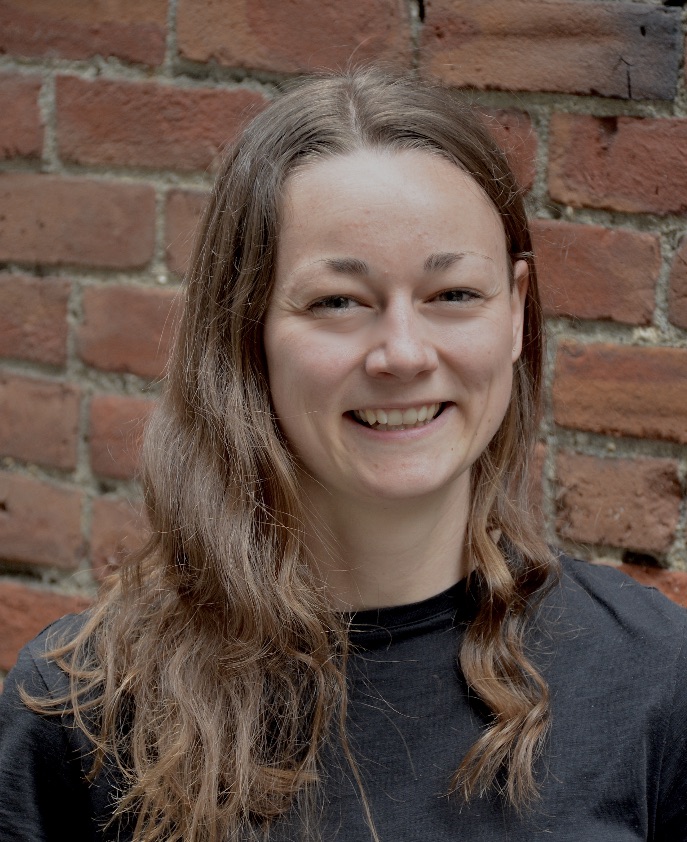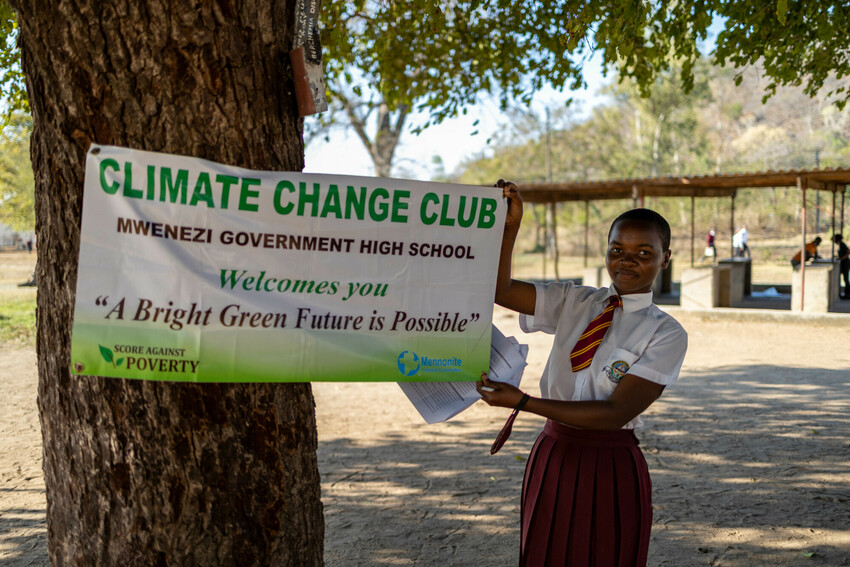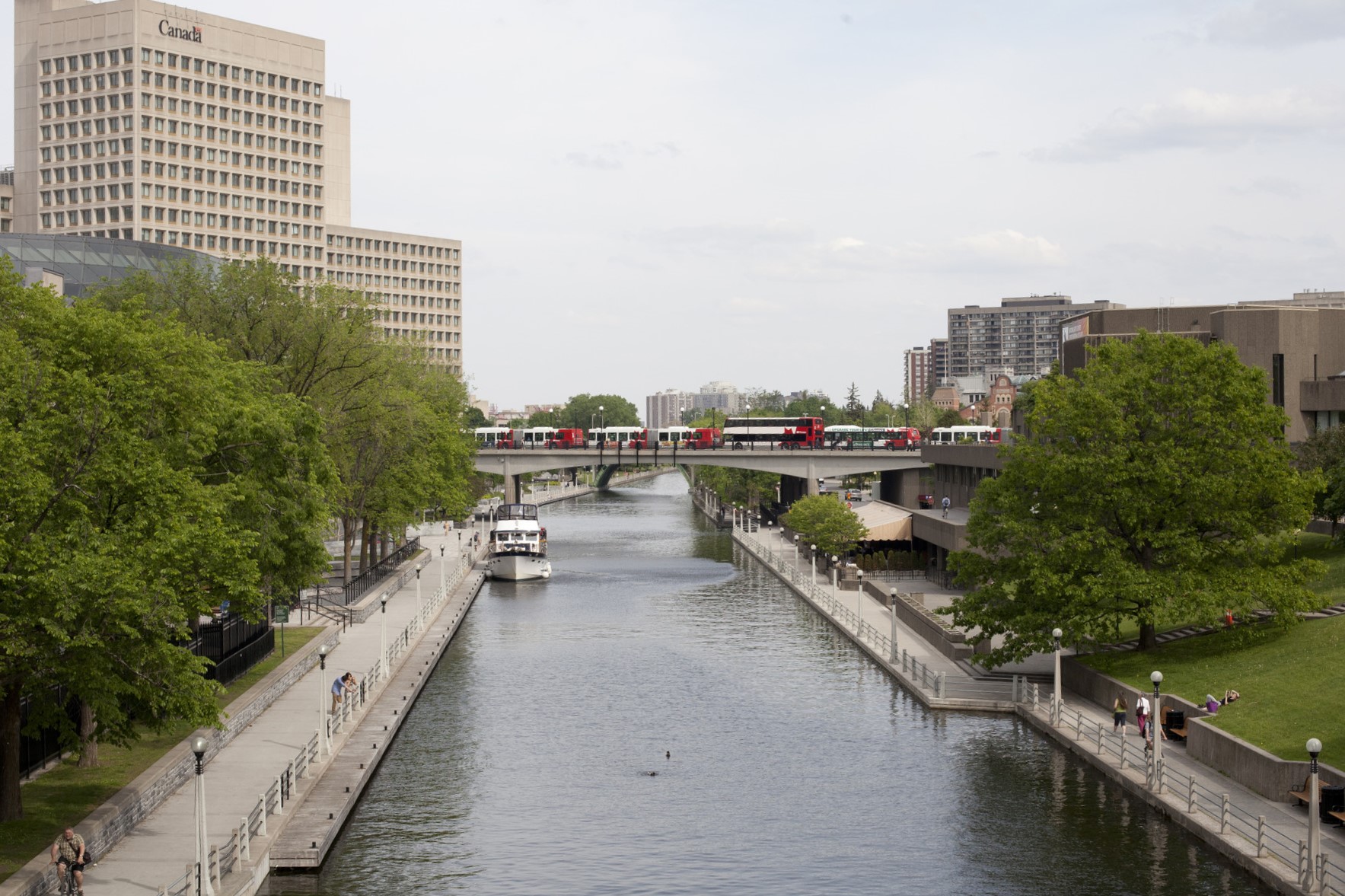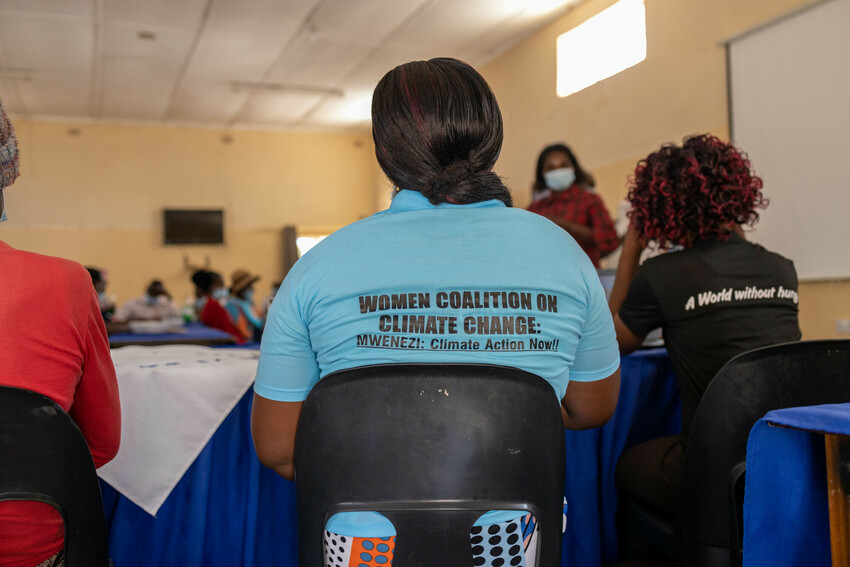Let’s talk about climate change
If you’d asked my teenage self what I thought about climate change, I probably would not have had much of an answer for you. It just wasn’t something I spent much time thinking about. But I did care. In fact, I’ve cared my whole life — I just didn’t know it yet. I didn’t need to understand the ins and outs of the greenhouse effect or the carbon cycle to care about climate change, because I understood, and cared about other things in my life. Let me explain.

I grew up in rural, eastern Ontario. My childhood was spent mostly outdoors, running around the forest with my sisters, digging in the dirt, climbing trees and skating on our backyard rink in the winter. I didn’t know anything about climate change at age seven, but I did know lots about the trees, dirt, plants, animals, bugs and air that made up my small world, and I cared about them.
When I got a little older, I grew very concerned about justice, inequality and suffering in the world. I felt deep empathy for the hunger and hardship that people in my community and around the world were facing. I started following Jesus and experienced God’s reconciling and transforming love in and through my life. I still didn’t know much about climate change, but I cared a lot about people and justice, and about God’s loving desire for right relationships between people, creation and Himself.
Today, I have studied climate science and I understand the connections between the things I care about and climate change. Now, when I go back to where I grew up, I can see the way climate change is affecting the places I love. I have to be more careful walking through the woods, because ticks have now made their home there where they didn’t live before. I rarely skate on the rink anymore because winters are getting milder. My favourite summer activities, like cycling and hiking, are altered by the extreme heat and toxic wildfire smoke that are becoming more common.

Climate change is complicated. The science, policies, politics and technology are complicated and sometimes contested. But caring is simple. We don’t have to start caring about new things or understanding the complexities of earth’s systems before we start to engage with climate action.
We all care about our homes, our jobs and livelihoods, our health, our hobbies and our families. Beyond that, we care about our neighborhood parks and green spaces, our local environments, our communities and our country. Most of us care even beyond these immediate factors: we care about people suffering regardless of where they live, we care about animals, rainforests, coral reefs and glaciers; we care about the future.
Climate change is affecting all of these things
It’s easy to feel despairing or overwhelmed or even disconnected from both climate change and what we can do about it. We hear lots of messaging: recycle, upgrade your lightbulbs, ride your bike, fly less. But climate scientist Katharine Hayhoe encourages us that the best thing we can do about climate change, is actually much simpler: talk about it. Statistics show that the majority of people in the U.S. and Canada are at least moderately concerned about climate change, but we aren’t talking to each other about these concerns.
Scientists have been offering us graphs and stats and facts on climate change for decades, but communication research tells us that the most trustworthy argument we can offer someone isn’t an argument at all. It’s a story from a trusted source. Which is why its important for people like you and I to talk about climate change in ordinary circumstances like around our dinner table or at the bus stop.

And we can start where I did, by noticing how climate change is affecting the things we already care about. Perhaps you, like me, were disappointed that the Rideau Canal didn’t open for skating last winter. Maybe you know one of the 200,000 Canadians who were evacuated due to wildfires this past summer. Or you could be a farmer who lost crops or livestock to devastating heatwaves and droughts in Texas.
Talking about climate change is powerful, especially when we center it on how it impacts areas we already care about. Hayhoe believes that because we aren’t talking to each other about our concerns, we aren’t able to build a shared vision that can lead towards a better future. We might be surprised at the values and concerns that we share with those around us. Connecting with people breaks down “us” and “them” and reminds us that many people share our worries and hopes.
We might be surprised at the values and concerns that we share with those around us. Connecting with people breaks down “us” and “them” and reminds us that many people share our worries and hopes.

So let’s talk. To our friends, families, neighbors, our local leaders, our MPs. Let’s talk about how climate change is affecting the things we care about, and what we can do about it! Understanding the impacts of climate change on our daily lives is important, but talking about solutions and envisioning a sustainable future for everyone is how we move forward in creating change.
Problems as big as climate change cannot be fixed easily, quickly, or by a single solution. But as we talk about it, we can collectively build an understanding of what’s at stake, and why it matters. And we can give each other hope. The places and people that we love are already intimately connected to climate change. We all want hope for a better future. Let’s talk about that.

